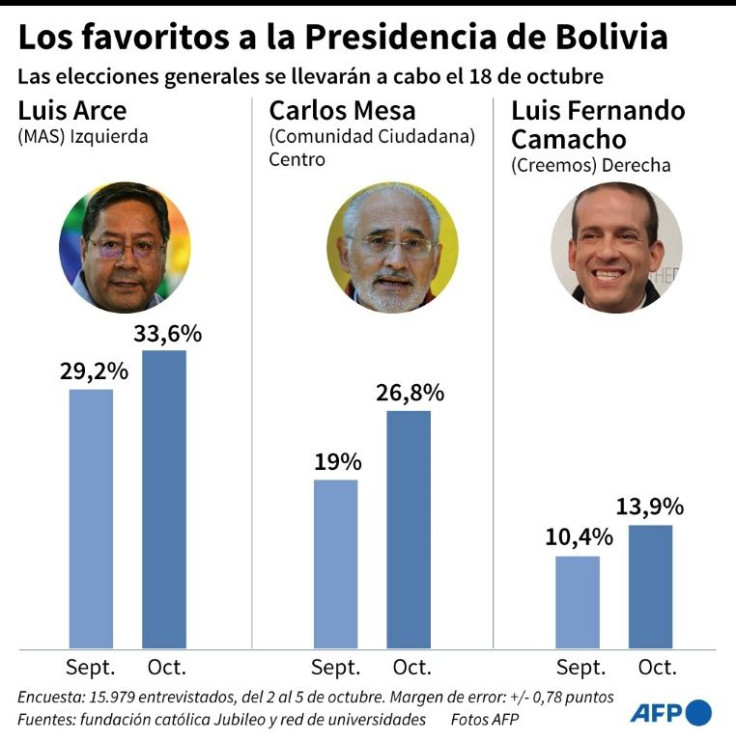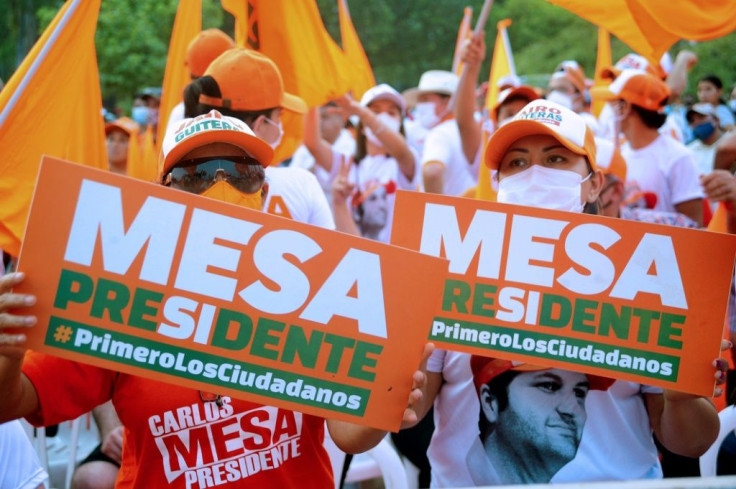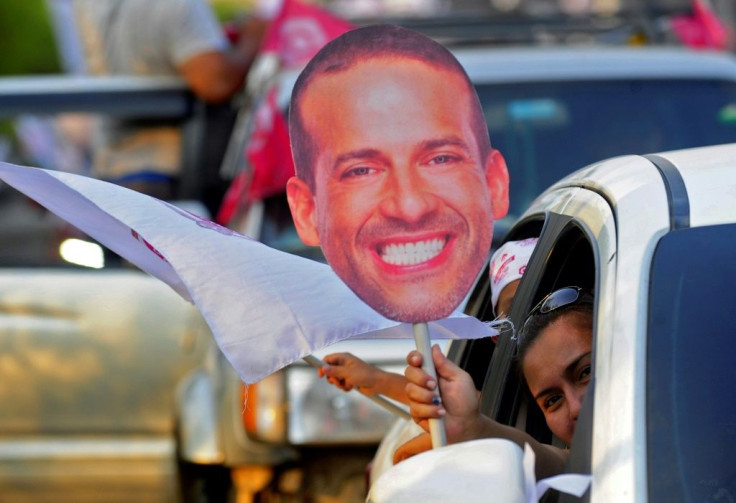Bolivia Set To Vote For President After Polarized Campaign
Bolivians will vote for a new president on Sunday and for the first time in two decades the name of Evo Morales will not be on the ballot paper.
Yet not only does the shadow of the landlocked country's first ever indigenous president loom large over the poll, he is the reason it is taking place at all.
Morales stood for, and won, an unconstitutional fourth term in a controversial election last year that sparked weeks of protests against his victory.
An Organization of American States audit subsequently found clear evidence of fraud and Morales resigned before fleeing into exile.

Now living in neighboring Argentina, he is barred from standing but his hand-picked successor as the Movement for Socialism (MAS) candidate, Luis Arce, leads opinion polls.
According to analysts Eurasia Group, "polls point to a very close race with... Arce within reach of a first round victory."
A Ciesmori poll released last week put Arce ahead with 30.7 percent of votes compared to his main challenger, the centrist former president Carlos Mesa with 24.7 percent.
To win outright in the first round, Arce would need to poll 40 percent with a 10-point advantage over his nearest challenger.

"While the margin will be close, we remain of the view Mesa will take the race to a 29 November runoff, which he would be favored to win," said Eurasia Group's analyst for Brazil and Bolivia, Filipe Gruppelli Carvalho.
Unless Arce wins in the first round, the other five candidates are expected to endorse Mesa in a runoff.
Mesa has already been boosted by the withdrawal from the race of conservative interim president Jeanine Anez, who quit a month ago after dropping to fourth in opinion polls.

After last year's poll, the protests were sparked by a deep feeling that the election had been stolen.
This time will be different, though, according to the chief of the top electoral body, Salvador Romero.
"We're going to have a clean, secure and trustworthy election day," he said, adding that this time the result would "faithfully reflect the popular will expressed at the polls."
It has been a particularly polarized election campaign, and the vote has twice been postponed due to the coronavirus pandemic.

The interim government accused Morales and Arce of "terrorism and genocide" over a 12-day roadblock movement in August that saw hospitals complain they were unable to receive urgent medical supplies needed to treat coronavirus patients.
Morales, meanwhile, constantly rails against his opponents on social media, accusing them of being "putschists."
Arce is also being investigated over alleged misappropriation of public funds during his tenure as economy and finance minister under Morales.
The former leader is himself under investigation accused of "statutory rape and trafficking" over alleged relationships with underage girls.
Yet the country's devastated economy is the main issue facing the candidates.
Arce was widely credited with Bolivia's "economic miracle" during Morales's 2006-2019 presidency, during which the country experienced more than 4.0 percent annual growth while poverty rates tumbled from 60 percent to 37 percent, according to official figures.
"Bolivia needs to recover the path of stability and economic growth with social justice," said Arce.
Mesa has dismissed the success of that period, arguing that the country benefitted from high primary materials prices rather than expert economic management.
Growth had been slowing since 2014 even before the coronavirus ravaged the economy, which is expected to shrink by 6.2 percent in 2020.
Critics of Morales claim his failure to implement structural economic reforms meant the growth was unsustainable.
Bolivia remains one of the poorest countries in the region despite its vast mineral resources such as gas and lithium.
Mesa has promised to strengthen economic diversification but has ruled out reversing Morales's nationalization of the hydrocarbon industry.
But the current economic climate is troublesome and the new president will face financial restrictions.
"We're very close to a serious economic crisis," Roberto Laserna, an economist and president of the Millennium Foundation, told AFP.
As well as choosing a new president, the 7.3 million eligible voters will elect a new Congress, both chambers of which are currently controlled by MAS.
Although likely to remain the largest party, MAS is not expected to win more than half the seats in either chamber.
© Copyright AFP 2024. All rights reserved.





















